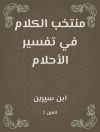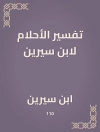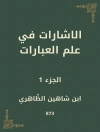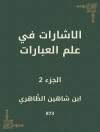Interviews are the most common data collection instrument undergraduates turn to. No matter what discipline or level, someone in the course will be doing some interviews. They’re quick, cheap and students think they’re easy. The first two are true, but it’s more than just asking a list of questions.
This Little Quick Fix lays out the basic how-to of choosing an interview as a method for a project or dissertation, and how to do it well enough so students aren’t docked marks for poor or irrelevant data. Practical and hands-on, readers will be shown everything they need to prepare, how to do it quickly, and all the pitfalls to avoid. Packed with checklists, this is the foolproof solution to getting interview data quickly and effectively. Perfect for undergraduates who need to do this in a week or two.
Little Quick Fix titles provide quick but authoritative answers to the problems, hurdles, and assessment points students face in the research course, project proposal, or design – whatever their methods learning is.
- Lively, ultra-modern design; full-colour, each page a tailored design.
- An hour′s read. Easy to dip in and out of with clear navigation enables the reader to find what she needs – quick.
- Direct written style gets to the point with clear language. Nothing needs to be read twice. No fluff.
- Learning is reinforced through a 2-minute overview summary; 3-second summaries with super-quick Q&A
- DIY tasks create a work plan to accomplish a task, do a self-check quiz, solve a problem, get students to what they need to show their supervisor.
- Checkpoints in each section make sure students are nailing it as they go and support self-directed learning.
- How do I know I’m done? Each Little Quick Fix wraps up with a final checklist that allows the reader to self-assess they’ve got what they need to progress, submit, or ace the test or task.
Table des matières
1. How do I know I should use interviews in my research project?
2. How do I find people to interview?
3. How do I get people to agree to be interviewed?
4. What kind of questions will give me the most detailed data?
5. What practicalities do I need to plan?
6. How should I behave during the interview?
7. What should I do after the interview?
A propos de l’auteur
Helen Kara is a leading independent researcher, author, teacher and speaker specialising in research methods, particularly creative methods, and research ethics. With over twenty years’ experience as an independent researcher Helen now teaches doctoral students and staff at higher education institutions worldwide. She is a prolific academic author with over 25 titles; notably Creative Research Methods: A Practical Guide and Research and Evaluation for Busy Students and Practitioners, both in their second editions. Besides her regular blogs and videos, she also writes comics and fiction. Helen is an Honorary Senior Research Fellow at the University of Manchester, and a Fellow of the Academy of Social Sciences. In 2021, at the age of 56, she was diagnosed autistic. Her neurodiversity explains her lifelong fascination with, and ability to focus on, words, language and writing.












